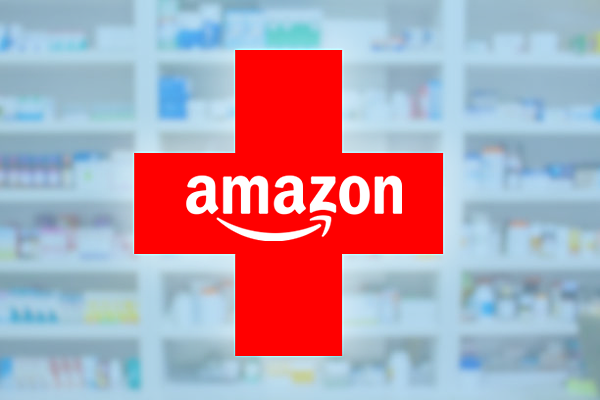 During the past 20 years, Amazon steadily gained significant share in a wide range of markets: from books and music to streaming video and home electronics. Now, analysts are predicting that the $175 billion company is poised to enter the healthcare industry. With their existing distribution network, advanced AI system and positioning into retail spaces, they have the potential to affect healthcare in a variety of ways. There are at least five sectors of the healthcare market where Amazon is or soon could be operating:
During the past 20 years, Amazon steadily gained significant share in a wide range of markets: from books and music to streaming video and home electronics. Now, analysts are predicting that the $175 billion company is poised to enter the healthcare industry. With their existing distribution network, advanced AI system and positioning into retail spaces, they have the potential to affect healthcare in a variety of ways. There are at least five sectors of the healthcare market where Amazon is or soon could be operating:
Medical Supplies and Equipment
Amazon's push into the medical supplies market is its most visible effort to get a share of the enormous healthcare pie. The online retailer is already selling items like syringes, gloves, bandages and a wide selection of other supplies, and they have set up distribution licenses with 43 states. According to equity analyst Brian Tanquilut, Amazon is looking to enter markets "without high-level government level scrutiny," and sales of supplies to dentists and other professionals has the lowest barrier to entry.
Amazon is poised to increase its share of medical supply sales partly because it already has more than 1 million Amazon Business customers. Competitors in the industry, such as Cardinal Health, McKesson, and Owens & Minor are expecting to see further downward pressure on prices. The result may be that the traditional model of having a careful chain of custody, ensuring a certain quality of goods, may go away in favor of a lowest price wins system.
Online and Retail Pharmaceuticals
Locally owned and operated pharmacies have faced hard times over the past few decades as chain drug stores have opened locations in nearly every town and city across the nation. Now, those retail chains may be facing troubles of their own if Amazon decides to enter the consumer pharmaceutical market. Speculation that the online retailer might be entering this industry is being fueled by the company's recent acquisition of Whole Foods and their approval for wholesale distribution by 12 state pharmaceutical boards.
In addition to its expanding retail space and extensive supply chains, Amazon also has an advantage when it comes to drug usage analytics. They may be able to predict patient pharmaceutical needs using existing patterns, lowering their costs and providing better customer service. Traditional pharmacies that don't use these types of metrics may find themselves falling behind very quickly.
Telemedicine and Home Health Care
More than 20 million Amazon Echoes are in homes throughout the world, connecting customers with the company's vast selection of goods through a friendly AI presence known as Alexa. Currently, the device has the technological capability to schedule physician visits and prescription drug delivery. It may even be able to answer simple health related questions that don't require a real doctor's or nurse's time.
While these devices may currently be used for relatively simple questions, reminders, and orders, there's no telling what their potential might be for telemedicine. Patients who have the option to speak with their doctor about minor issues from the comfort of their home are likely to find the option to use an existing device very attractive. When full high definition video becomes more abundant through the Echo Show, there may be great potential for remote diagnostics and care.
Computer-Powered Diagnostics and Continual Care
Amazon's current artificial-intelligence technology, commonly known through it's consumer interface Alexa, already has impressive capabilities that are likely to translate well to computer-powered medical diagnostics. IBM's supercomputer Watson has been offering diagnostic and analytical services for years with some mixed results, but the technology is only getting better. The machine-learning capabilities Amazon already uses to recommend products could be leveraged for refilling prescriptions and providing medication reminders. With access to a database of medical research and patient data, it may be able to do a lot more.
Over-the-Counter Drugs
Amazon won't respond openly to speculation about its future in the healthcare market in most areas, but they have acknowledged their growth in over-the-counter medicines. Last summer, they launched a private label of medications, called the Basic Care line, manufactured by Irish company Perrigo. Products include allergy medications, laxatives, cold and cough remedies, analgesics, and more. The private label items are usually a lot cheaper than their chain store counterparts, and they provide a lot more profit. Both these conditions threaten the existing over-the-counter model at drug and grocery stores.
It is still unknown what the future holds for a healthcare market by Amazon. But even if part of what analysts are predicting comes true, Amazon will fundamentally transform many aspects of the healthcare industry - downward trending prices and changing customer expectations are likely to be the new norm.
